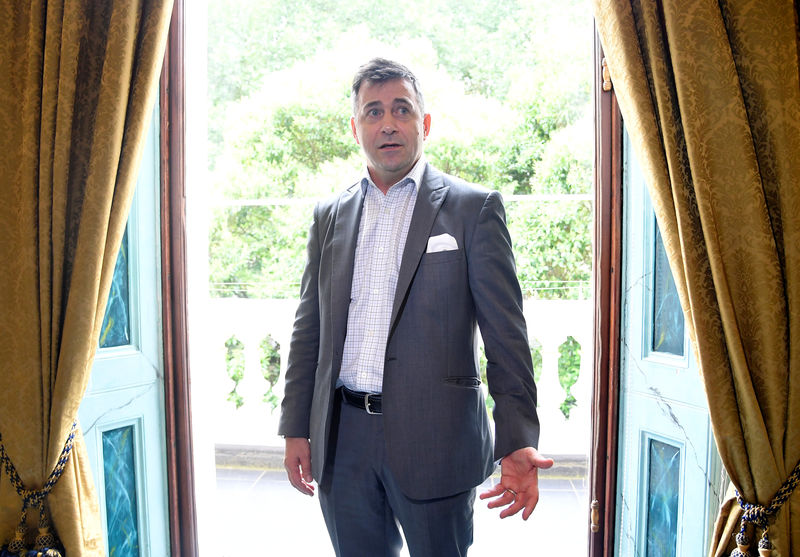By Guy Faulconbridge
LONDON (Reuters) - The United Kingdom needs to urgently clarify how trade with the European Union will work after Brexit, and the world's fifth-largest economy should remain in the customs union unless there is a proper alternative, the boss of Siemens UK said.
With only nine months left until the United Kingdom is due to leave the EU, little is yet clear about how trade will flow as Prime Minister Theresa May, who is grappling with a rebellion in her party, is still trying to strike a deal with the bloc.
"My biggest worry about Brexit is that I don't know what we are planning for," Juergen Maier, 54, the UK CEO of German engineering giant Siemens told Reuters in an interview.
"We need to put something in place quickly that works and if that is not possible, and until that point, then we have to just default to staying in the customs union," Maier said.
May has ruled out staying in the EU customs union, which clubs the 28 EU members in a duty-free area where there is a common import tariff for non-EU goods.
But the nature of the future trading relationship with the world’s biggest trading bloc has split May’s government and Conservative Party.
Under the current timetable, both London and Brussels are working towards a final Brexit deal in October to give enough time to ratify it by Brexit day in March 2019.
Maier said: "We ship thousands of goods daily across the borders that help keep power stations running, that help keep trains running, that help keep British manufacturing running - are those parts going to be able to pass pretty frictionlessly over the border?"
"Or are we going to be in a situation where we have supply chains that are struggling to deliver to us and where we are struggling to export from the UK?"
The views of the Siemens boss highlight the growing sense of nervousness among business leaders about the prospect of Britain crashing out of the bloc without a deal or with a deal that would silt up the arteries of trade.
The UK is Siemens' fourth-largest market after the United States, Germany and China. It employs 15,000 people in the UK and 56,000 UK jobs depend on it.
"If the Brexit we end up having provides significant friction, provides significant cost then of course that will be an argument against making investments here in the UK," he said.
BREXIT TRADE
Maier, who was born in Germany and moved to the UK when he was 10, said he was not seeking to stop Brexit but wanted Britain to seek a "soft and reasonable" departure.
Around 52 percent of the UK's total $1.1 trillion trade in goods last year was with the EU so May wants to sign a free trade agreement and negotiate an as yet relatively undefined customs arrangement to ensure as frictionless trade as possible.
The options discussed so far, though, offer nothing close to the current ease of trade, according to Maier.
"I would like to stay in the customs union until we see a workable alternative and I haven't seen one yet," he said.
Maier said that adding just two minutes onto every lorry's customs procedure passing through the southern English port of Dover would produce a 14-mile tailback on either side of the Channel after one day.
Supporters of Brexit admit there may be some short-term pain for the UK's $2.9 trillion economy but that long-term it will prosper when cut free from the EU which they cast as a failing German-dominated experiment in European integration.
Many CEOs, though, fear that a disorderly Brexit will disrupt supply chains across Europe and cripple the economy for at least a decade by deterring investment.
Maier said planning for Brexit was tough.
"The fact is - it is very difficult because we don't know exactly what we are planning for. Contingency planning is very difficult when the options are so varied."
"We have got contingency plans that we can implement depending on various scenarios and one of those scenarios is a no deal - but let me tell you that scenario doesn't look very good," he said.
So how much has all that Brexit worry cost Siemens so far?

"We haven't put a figure on what Brexit has cost us so far. But it is relatively small to what a Brexit is likely to cost, especially in a no deal scenario."